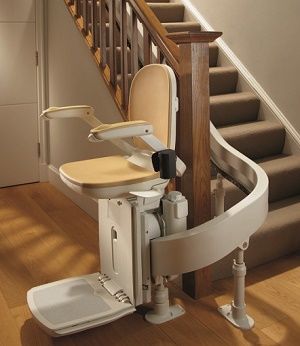DFG GUIDE: A Disabled Facilities Grant helps to cover the cost of making essential improvements to your home.
That means many people with disabilities can continue to live in their own homes. But a DFG is usually based on the recommendation of an occupational therapist.
This guide explains who can apply for a Disabled Facilities Grant. We also list the kind of changes the money pays for.
There must be a person with a disability living in the property. If so, owner occupiers, private tenants, or landlords may get a DFG. The financial assistance can help pay for necessary adaptations to the building.
What Does a Disabled Facilities Grant Cover?
You may get the grant if the changes that you need are necessary to meet your daily needs. The list of alterations and adaptations include:
- Structural work to widen door openings and install ramps.
- Construction work to improve room and facility access (e.g. a downstairs bathroom or stairlift).
- Appliance installation to provide a heating system suitable for your needs.
- Adaptations to heating or lighting controls to make them easier to use by a disabled person.
Note: A Disabled Facilities Grant does not affect your rights to benefits and allowances.
Disabled Facilities Grant Amount
How much you get depends on two main factors:
- The amount of your household income.
- Whether your household savings are over £6,000.
In some cases you may need to pay an amount towards the cost of the work to your property.
- Disabled Facilities Grant England: Up to £30,000
- Disabled Facilities Grant Wales: Up to £36,000
- Disabled Facilities Grant Northern Ireland: Up to £25,000
- Disabled Facilities Grant Scotland: Not available (you may get support for equipment and adaptations)

Disabled grants are also available to children under 18. A child with a disability can qualify without the inclusion of their parents’ income. Your local council can offer you further information.
Note: You must wait for council approval to your application. Starting the work on your property before they approve means you may not get any grant whatsoever.
Disability Facilities Grant Payments
You will get the money either:
- In several installments: as the work progresses.
- In one full payment: when the work gets completed.
In most cases your council will pay the contractor directly. Another method is payment by a cheque for you to pass on to the workers. Your local council will agree the terms with you when they approve your application.
When Do the Council Pay?
In most cases it will be either:
- When the council is completely satisfied with the finished work.
- When you provide the council with the contractor’s invoice, demand or receipt for payment.
Note: What happens if you (or a relative) carries out the work? In this case the council only accepts invoices for materials or services that you have paid for.
Disabled Facilities Grant Eligibility Criteria
There is an eligibility criteria to qualify for Disabled Facilities Grants. A landlord can also apply for a disability grant if they have a disabled tenant. Either you or a person living in your property must have a disability.
You or the person that you are applying for must:
- Either own the property or live there as a tenant.
- Plan to live in the property during the full term of the grant period (currently 5 years).
The council will need to be fully satisfied that the disability grant work is:
- Appropriate and necessary to meet the needs of the disabled person.
- Reasonable and workable depending on the age and structural condition of the property.
DFG Planning and Building Regulations Approval
You must apply for any separate or relevant planning permission and building regulations approval. The council can request you use a qualified architect or surveyor to design and oversee the work. But, you can use some of the grant to pay their fees if you get accepted.
How to Apply for a Disabled Facilities Grant
Apply for the grant through your local council housing department. As a general rule, the council will send an occupational therapist (OT) to meet you. The OT will review your circumstances and help to determine what changes you may need.
Note: The Northern Ireland Housing Executive (NIHE) provides disabled facilities grants to help improve homes of people with disabilities in Northern Ireland.
Council Authority Appeals
You can appeal to your Council Authority if are not satisfied with their decision. If you are still unhappy after an appeal you can complain to the Local Government Ombudsman.
ALSO IN THIS SECTION
Carers and Disability Benefits: List of categories for claiming carer or disability benefit allowances.
Carer’s Allowance: An earnings replacement benefit that carers can claim for taking care of someone.
Attendance Allowance Benefit: A tax-free weekly personal care benefit for those who are aged 65 or over.
Disability Living Allowance: DLA tax-free benefit for disabled people continues for those already claiming.
Personal Independence Payment: PIP is a regular payment for those with a long-term illness or disability.
Disability Benefits Helpline: A help guide and how to contact the Disability Service Centre in the UK.

